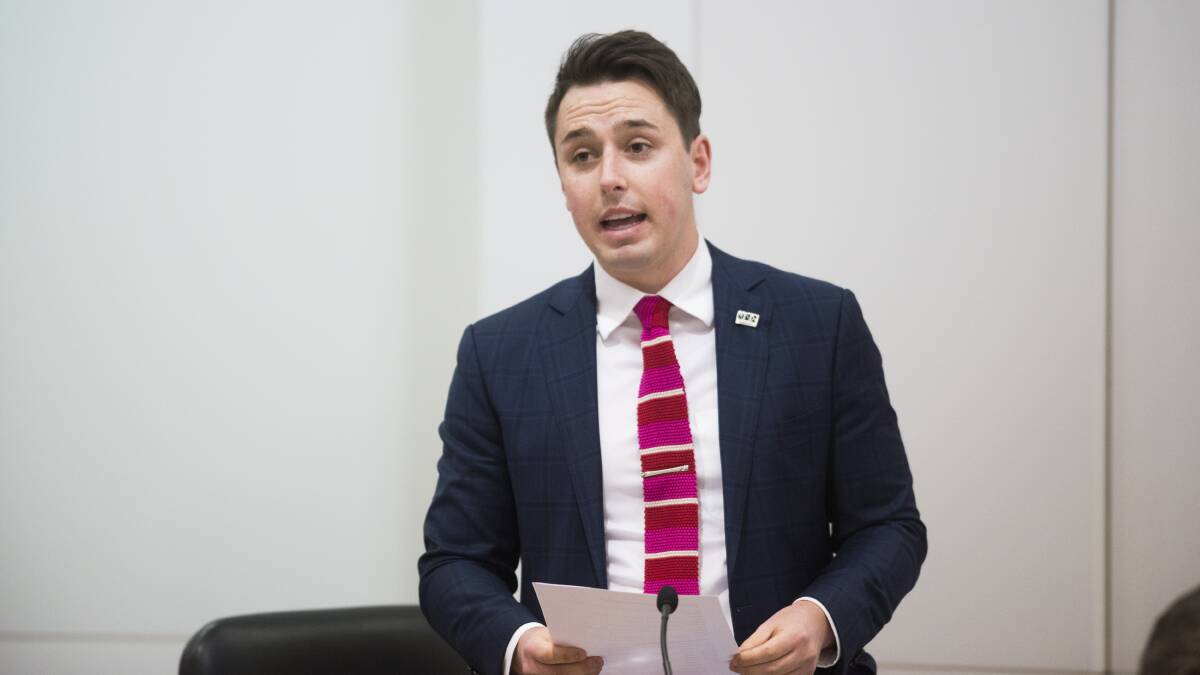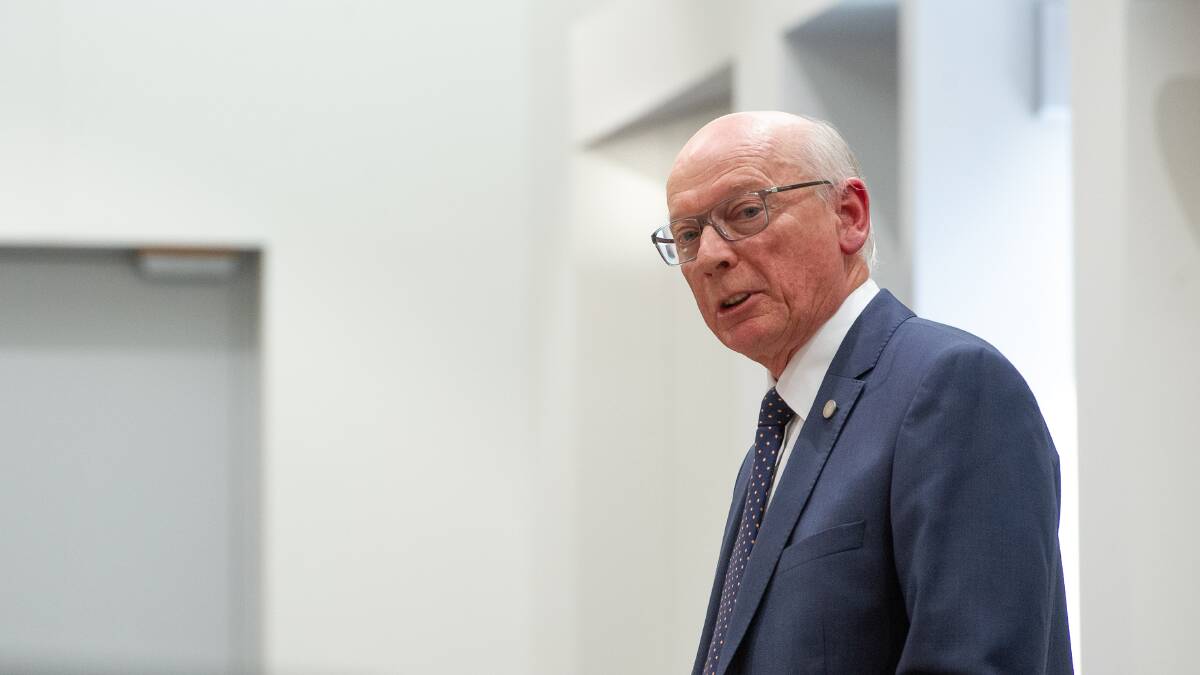
Small amounts of certain illicit drugs should be decriminalised in the ACT, an inquiry has recommended.
Subscribe now for unlimited access.
or signup to continue reading
However, the Canberra Liberals committee chair has rejected the recommendations in a dissenting report, saying the bill failed to consider the risks of decriminalisation.
The bill, put forward by Labor backbencher Michael Pettersson, would decriminalise small amounts of drugs including ice, heroin and MDMA.
A report into the bill from a select committee was tabled in the Assembly on Tuesday morning and the Labor and Greens members of the committee supported Mr Pettersson's bill.
However, the committee has recommended the ACT government should revise some of the possession limits to ensure it reflects patterns of consumption for personal use.
The ACT's police have previously voiced concern the 2 gram limit for ice possession could equate to about 20 doses.
The committee report also recommended that the bill should be amended to include a "catch-all" clause that would allow the inclusion of emerging drug trends.
"While the list of drugs included in the bill account for the majority of drug related arrests in the ACT, it is usual practice for legislation on drugs of dependence to include provisions for new and emerging substances, which captures ongoing innovation in the drugs of dependence market," the committee report said.
Labor backbencher Marisa Paterson, who was on the select committee, referenced the experiences of families who spoke to the inquiry who had seen firsthand the damage from drug addiction.
"These families are normal everyday families contributing to society like everyone else, yet they have experienced so much loss," Dr Paterson said.
"No one is above the impacts of drug addiction. What concerns me the most and I think is significantly highlighted by the inquiry is the lack of voices from people with lived experience of drug use and dependence.
"I believe this highlights the stigma and trauma associated with drug dependency, and the ultimately disempowering nature of addiction."
Dr Paterson said decriminalisation would reduce harm, stigma and trauma and would increase treatment and service support to help provide a path forward.
Greens committee member Johnathan Davis said a health response to drug use was needed in order to combat stigma and ensure that anyone who wants support is able to get it.
"It is clear that the criminal justice system is not an effective or compassionate method for caring for people with substance issues," Mr Davis said.
"We are calling on the government to support the decriminalisation of possession with a number of essential and progressive amendments to the bill before us."
However, the opposition chair of the committee Peter Cain filed a dissenting report opposing the passing of the bill.
He argued the bill would enable drug tourism and it would conflict with Commonwealth law and put a burden on the territory's Australian Federal Police officers who will be conflicted on what law to follow.
Mr Cain's dissenting report said a whole-of-government response was needed to drug policy and this bill did not cover it.
"This is a complex matter involving justice, health and social services where a change in one area will often have effects across government," the dissenting report said.

"Accordingly, drug policy requires a whole-of-government evaluation and response. This more comprehensive approach is far superior to that of a member presenting an initiative that only addresses one aspect of government operations responding to the use of harmful drugs."
READ MORE:
Mr Cain also questioned why a Labor backbencher brought forward the bill and not the government.
"Given statements by the Chief Minister after the passage of the drugs of dependence, personal cannabis use Amendment Act 2019 ... this really is a Labor party position," he said.
"It's disingenuous to have one of their members present that bill in his private member's capacity."
The proposed legislation would set a possession limit of 2 grams for cocaine, ice and heroin and 0.5 grams for ecstasy. People caught with this amount or less would be given a $100 fine, as opposed to going through the justice system.
Another recommendation in the report was to explore other alternatives to a fine, including information sessions on drug harm reduction, a peer support service or other drug treatments.
The bill was put forward by Mr Pettersson in February, who previously spearheaded legislation to legalise cannabis possession in the territory.
"Having observed some of the proceedings and some of the submissions, I believe this inquiry was productive and worthwhile," Mr Pettersson told the Assembly.
"I've been encouraged since I first raised this proposal by the genuine community engagement in this debate, I think without fail there is genuine community concern about the wellbeing of people that use drugs and the wider societal impact of these substances."
Our journalists work hard to provide local, up-to-date news to the community. This is how you can continue to access our trusted content:
- Bookmark canberratimes.com.au
- Download our app
- Make sure you are signed up for our breaking and regular headlines newsletters
- Follow us on Twitter
- Follow us on Instagram


